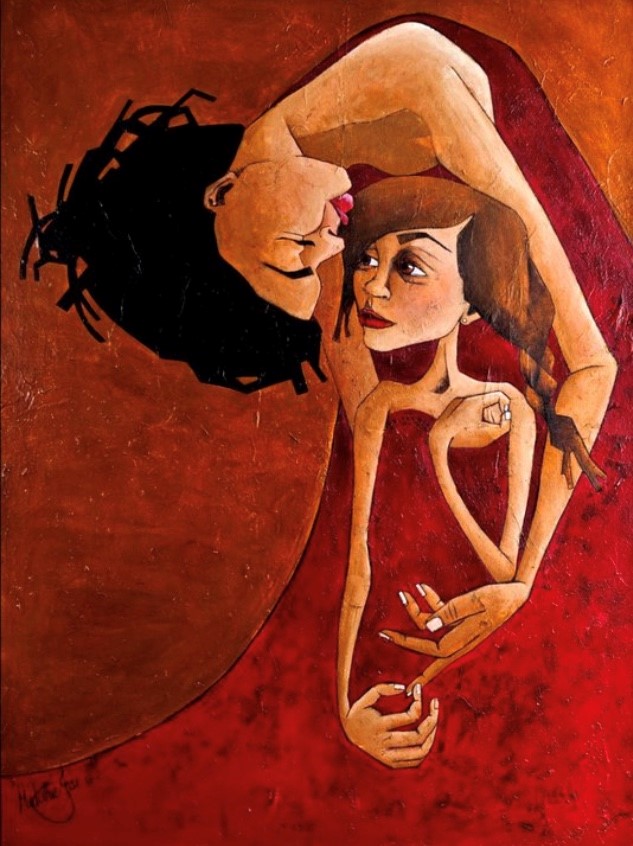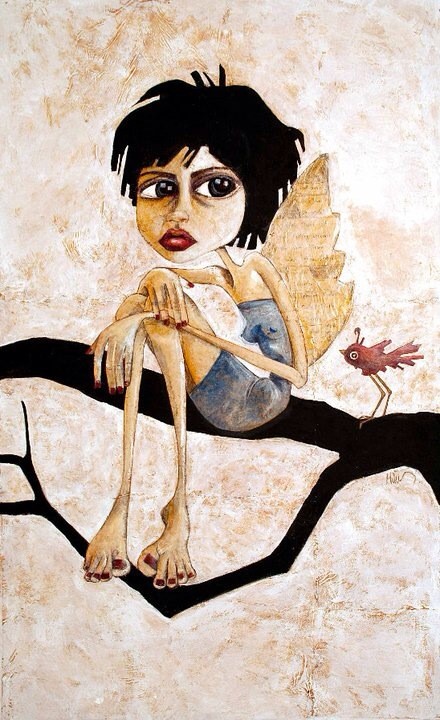The following content may be disturbing for victims and survivors of violence and trauma. We encourage you to use your discretion as to whether you should continue reading. You can also seek support from Safe Steps (Women’s 24-hour Domestic Violence Crisis Service phone 1800 015 188) or visit here for a list of after-hours support numbers.
When talented artist Melanie Jai first contacted Windermere’s Victims Assistance services, she was in the midst of a complete breakdown and in deep crisis.
She was trying to cope with the trauma of a recent assault and the legacy of years of childhood abuse. She had stopped eating and sleeping and was terrified of being alone.
Melanie had previously disconnected herself from her horrific memories but had been forced to confront them when she went through surgery as a result of a domestic violence incident by her former partner.
“I had never before disclosed, and therefore dealt with, what had happened to me as a child. So when I was pulled apart physically, my mind had nowhere else to go and sort of imploded. Suddenly I had to face this past trauma, and recognize its place in getting to this point,” she says.
Not even Melanie’s parents had been aware of the sexual abuse, which started when she was only four years old and lasted for years. “No one ever knew something was wrong, I dissociated myself from the experience and on the outside, I was a happy, people-pleasing girl,” she says.
Although the abuse may not have been obvious to others, Melanie’s life choices and actions were deeply influenced by her long term trauma. “It shaped my understanding of boundaries and I never learnt how to protect myself from predatory people,” she said. As an adult, she was drawn into a cycle of violent relationships.


Following her hospitalisation, she was referred to family violence services where she met other victims, one of whom discussed with her their experience with the Victims Assistance Program (VAP). VAP is government-funded and designed to assist victims of violent crimes to recover. Melanie knew she needed help desperately, and reached out. While she now lives elsewhere, VAP works from the location of the crimes committed against the client, so she was referred to Windermere, which operates VAP services in the southern Melbourne metropolitan and Gippsland areas.
Windermere supported Melanie to receive trauma counselling, make a “gut-wrenching” police report and significantly, eventually disclose her childhood abuse to her parents.
“I wish I could have spared my parents that moment, though they tell me it has helped them to understand me better,” she says.
Unfortunately, she then had to repeat her initial police statement after the first one was lost in the system.
As a result of the support and counselling she received, Melanie started to use her artwork to express her personal journey and healing. Today she uses art to express her feelings and to tell her story. She has toured nationally and was scheduled to have her first solo exhibition, called “The Paper Boat Project” in New York. This exhibition has currently been postponed due to COVID-19.

Paper boats are analogous of anyone who has suffered from child abuse. They are fragile, but with the right support they will not sink.
“People look at survivors and characterise us as brave and strong, but sometimes I think this can be a dangerous message to give to those that are still suffering abuse. If I could say one thing to someone still in it, it would be that you don’t have to be those things to get out. I wasn’t. I was compliant and scared. But I was also resilient, as any victim of abuse has to be just to survive. This was what helped me eventually break the cycle,” she says.
Melanie’s message is that there is help out there for others in similar situations.
Today Melanie has ongoing trauma counselling and is focusing on picking up the pieces to create a future for herself and her two teenage children.
“It’s hard work and I still have triggers and really bad moments, I still fall into black holes at times. The difference is, now I have a strong support system around me, and am learning the necessary tools to be able to better deal with these times. The holes continue to get shallower and further between.” she says.
“I am so much more than the bad things that have happened to me. Now, I want to find purpose in it all. To help continue the conversation. So I’ll keep painting, and writing, and using my voice, for those who cannot.”
To see Melanie’s artwork, limited edition prints and prose, visit her on Instagram or Facebook under Melanie Jai.
To find out more call Windermere’s Victims Assistance team on 1300 946 337 during business hours or visit here.
If you are unsure if you are eligible for this service, you can call the Victorian Government Victims of Crime Helpline on 1800 819 817. The helpline is open 8 am to 11 pm, 7 days a week.
If you need urgent assistance you can find the contact details for a range of after-hours support services here.
You can find out more about Windermere’s range of support services here.